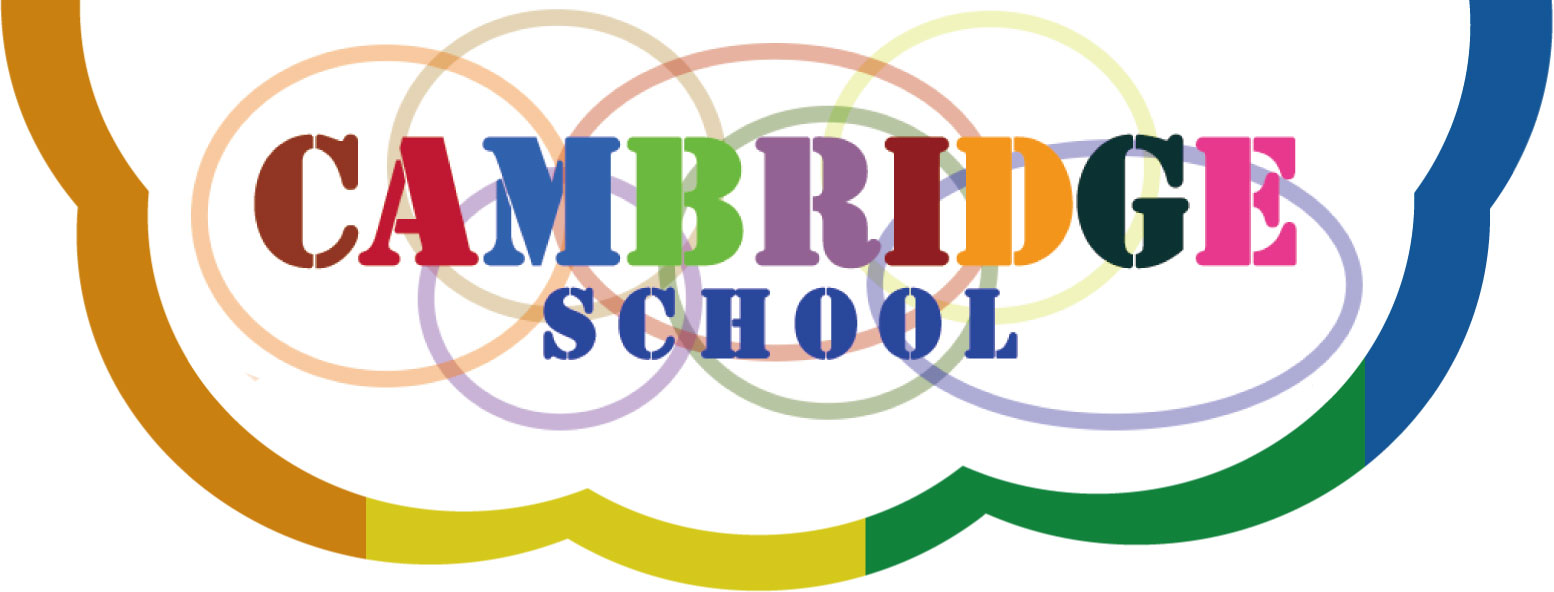Elementary After School Program
Introduction
The Cambridge After School Program provides English Language courses for Elementary and Middle School students who want to improve their English Language skills as well as prepare for School Entrance Exams, Eiken, and Cambridge tests. Courses use cross-curricular learning to help facilitate the learning of English and are suitable for both beginners and advanced students alike as classes are based on student levels.
Learning English
At Cambridge, we provide an environment that encourages and motivates children to exercise their initiative in communicating through meaningful tasks and activities. The teacher then talks and communicates with the children about the activity that arises from the tasks, allowing children to be exposed to authentic, English communication that forms a connection with what they are doing and observing, leading to meaningful learning.
The English the children learn is both context-based and meaningful by providing the communicational rationale that is required to establish both a connection with the situation and the function of language. We also incorporate subject matter from arts and craft, math, geography, science and more to introduce necessary vocabulary, new language and topics for students to engage in discussions and presentations using the newly learnt language and associated discourses. Materials related to real world contexts and language such as books, pictures, cartoons, magazine articles, stories, music, and grammar games are also used.
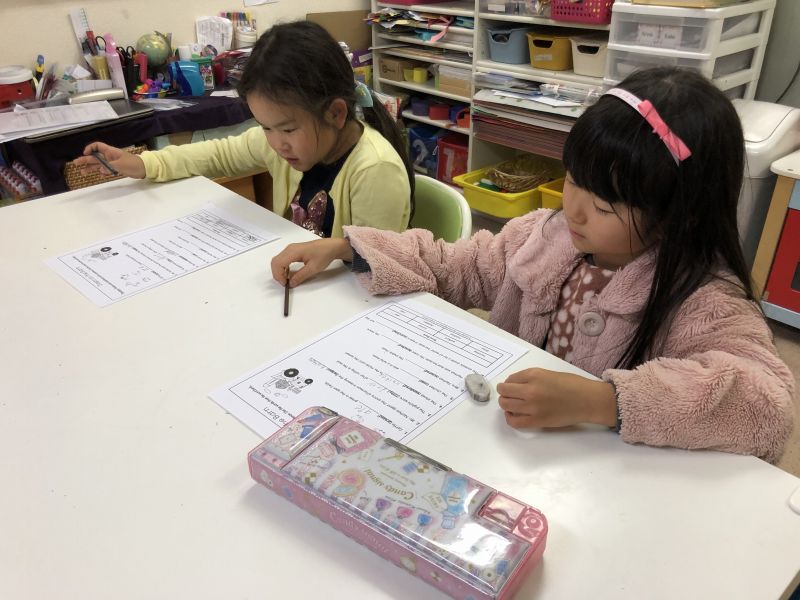
Reading
We practise key language structures in different tenses during speaking practice. Students usually progress from writing to speaking as writing forms the basis of communication in its grammatical form; whilst speaking can often uses colloquial and conjugations different to the written form. We use question and answer techniques and confirmation of meaning by expanding on the topics in question. Students can very often say something simple but struggle to expand, elaborate, or confirm additional details. It is important that they learn to expand their understanding of topics and be able to make appropriate responses to questions. We use a variety of techvniques including grammar games, role play, and shortened response formats to aid communication flow.
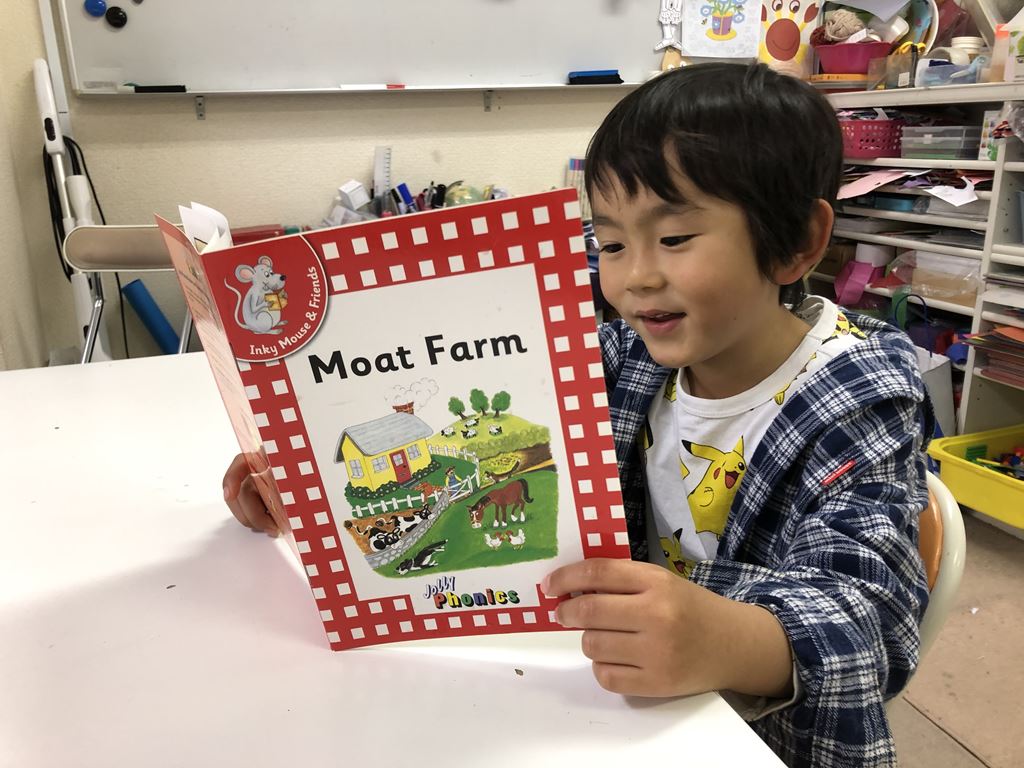
Speaking
We practise key language structures and tenses both in written and speaking forms. Students usually progress from writing to speaking as writing forms the basis of communication in its grammatical form; whilst speaking can often uses colloquial and conjugations different to the written form. We use question and answer techniques and confirmation of meaning by expanding on the topics in question. Students can very often say something simple but struggle to expand, elaborate, or confirm additional details. It is important that they learn to expand their understanding of topics and be able to make appropriate responses to questions. We use a variety of techniques including grammar games, role play, and shortened response formats to aid communication flow.
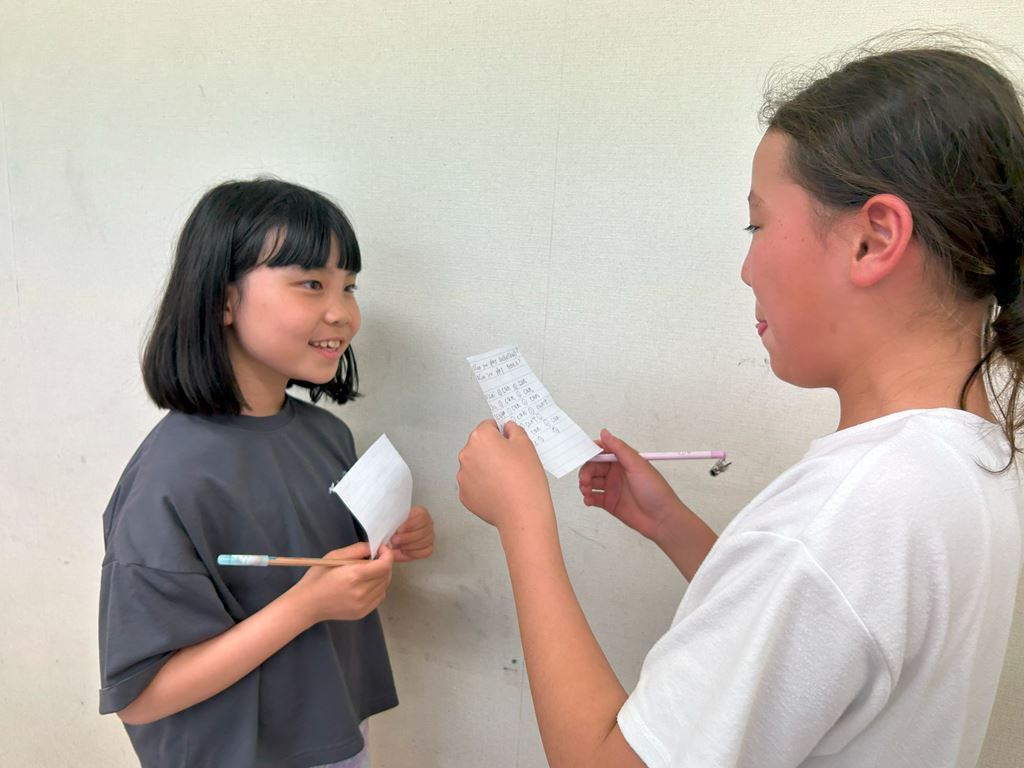
Writing
Writing starts with using phonics knowledge to spell out simple words based on the sounds students hear. By connecting sounds to letters, they learn to write CVC words and gradually more complex words with digraphs and blends. We guide them to build short, complete sentences using familiar vocabulary and grammar patterns practised in class. Students also work on writing answers to simple questions, completing sentence prompts, and describing pictures using basic sentences. Emphasis is placed on developing the confidence to write independently. Writing activities support and reinforce what students learn in reading, listening, and speaking.
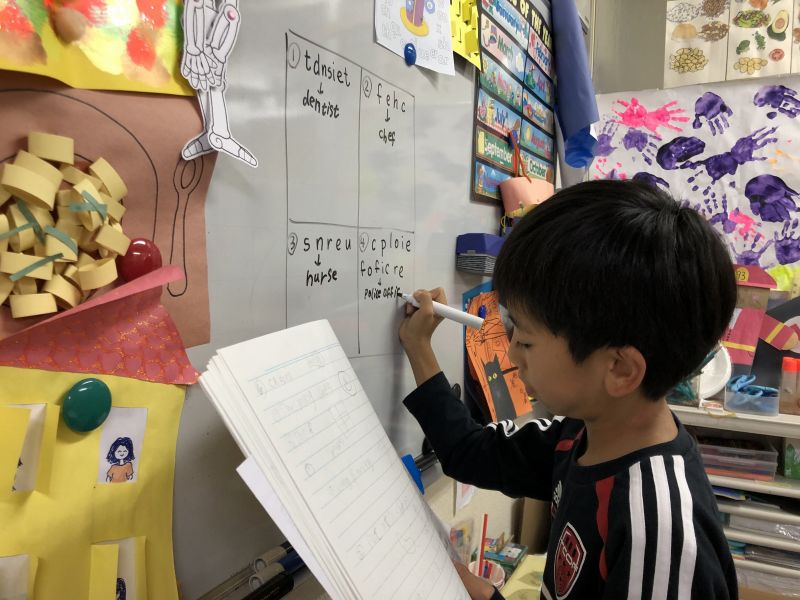
Listening
As well as the teacher’s voice, we use various authentic audio files including past exam audio files to practise listening comprehension. Teachers help students improve listening skills by providing both the audio text, as well as replaying sections after the initial listening to pick out individual words or tracts. We establish listening comprehension by asking what was meant by the speaker and discuss any new vocabulary that is not understood and the context and meaning therein. We also practice different techniques that help students understand listening comprehension questions more easily, such as how to skim through questions at the beginning and listen for keywords.
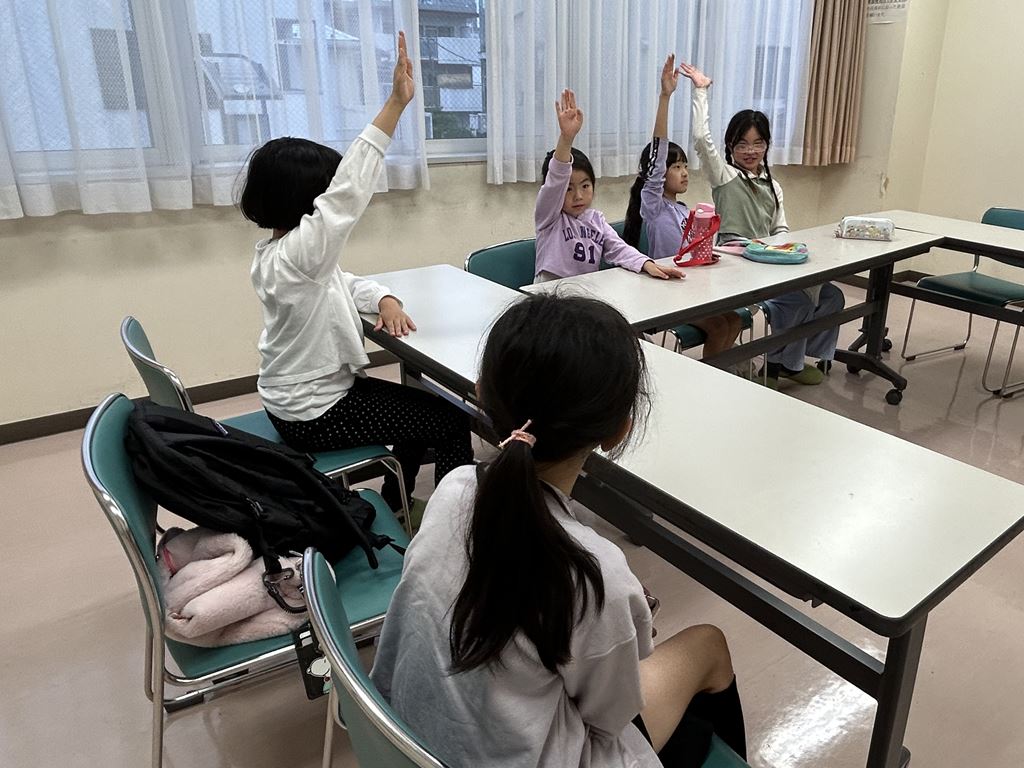
Fees and Schedule
The monthly fees are shown below. All prices include tax. For all courses, the registration fee is 24,200 yen, which includes an enrollment fee of 11,000 yen and annual maintenance fee of 13,200yen. For subsequent years, only the maintenance fee will incur on an annual basis.
| lesson | Time | 1 Day | 2 Days |
|---|---|---|---|
| Group lesson | 90min / 16:30 – 18:00 | 17,600 yen | 30,800 yen |
| 120min / 16:00 – 18:00 | 22,000 yen | 38,500 yen | |
| Private lesson | 50min / between 16:00 – 20:00 | 16,500 yen | 28,600 yen |
| 90min / between 16:00 – 20:00 | 24,200 yen | 44,000 yen |
Please in quire for more information about specific schedule for 1-on-1 lessons.
Where two or more children from the same family join the school, we offer a discount for the additional children. Feel free to contact the school for more information.
Classes are held at in the Sakurashinmachi area. Please contact for more details.
 Take the next step in your child’s education
Take the next step in your child’s education
Cambridge School offers online and in-person classes in English, math, and test prep. Unlock your potential using our tailored and comprehensive courses.
With our courses you can boost your skills and prepare for specialised tests such as Eiken, IELTS, and Cambridge tests. All our instructors are qualified to provide expert tuition and support for your child. Courses are available for ages 4 to 16.
Contact Us
Cambridge School

Either Japanese or English is acceptable
Weekdays from 9:00 a.m. to 6:30 p.m

